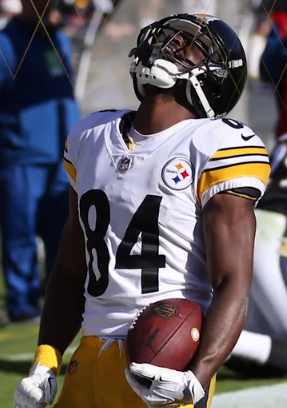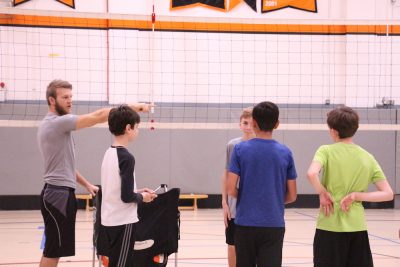
Traded due to issues with the team. $269,000 in fines. Frostbite and threats of retirement. Released before the first game of the season. Signed for on a $15 million contract with a new team. Sexual assault charges filed against him. Given an opportunity for the second game of the season. Texts leaked where he threatened his accusers. Released again and forgotten.
This is the story of the demise of Antonio Brown, who until this season was regarded as possibly the best wide receivers in the NFL. Despite all of the charges that have been brought against him, he still has a chance to play in the NFL again.
This is not a rare case of a professional athlete being allowed to play despite egregious accusations. Ray Lewis, one of the greatest NFL players of all time, pleaded guilty to obstruction of justice in a case in which two men were stabbed to death. The next season, he won defensive MVP and his team won the Super Bowl. NFL athletes are often given privileges and are exempted from many rules and allegations thanks to their fame and skill.
When does an athlete begin to benefit from their skill? At what age could this preferential treatment begin? Could it be happening in our very own middle school? In a survey of current seventh and eighth-grade students with over 100 responses. 33 percent said that they have seen a skilled athlete get special treatment from a coach. This shows that it is not a very rare occurrence to see a player receive special treatment from a coach.
Thirty-seven percent of students answered that they have been treated less equally then a better player, while 52 percent said they have not been treated less equally. This means that while it could occur that a player is held in higher regard, it does not happen that often, and ASL treats its athletes equally.
To find the player’s opinions on the treatment of athletes at ASL. I asked some players for their opinions. “Coach JJ is a good coach and uses all of his team when playing in a game.” Jayan Shah, an eighth-grade volleyball player said. This is an example of the players feeling that their coaches are fair, showing that there are more than just two sides to this story.
Mr. Akay Mustafa, the middle school athletic director, explained that even in the tryout and selection process, coaches are looking at the attitudes of players.
“During tryouts, obviously ability comes into it, but before we even look at ability, it’s attitude and character. So if during tryouts you can demonstrate that you’re a responsible, hard-working and positive individual that cares about their teammates and is respectful to those around them, then we will look at your ability,” Mr. Mustafa said.
This is a new look on the idea of the selection process. Many are afraid to try out due to their lack of skill, but Mr. Mustafa makes it clear that if you give the effort and the hustle for the team, your ability could be a less important aspect of your game.
Mr. Mustafa also said that players are all treated fairly, and if anybody were to receive more attention, it would be the players trying to develop a skill for the new sport.
The question of how skill affects your treatment will have different answers based on the perspective you hold. The adults who run the athletics like coaches and Mr. Mustafa will have a different view of what the student-athletes who are playing the game could be witnessing.
Antonio Brown should be out of the league because sexual assault is an inexcusable action, but actions like his are not condemned by the NFL. Players have done worse things than Brown but they too were able to continue playing.
However, the standards for a professional athlete are different from those of a middle school athlete at ASL. Mr. Mustafa said that athletes who break rules are often given the chance to make up for their mistakes. But the severity and number of these offenses are what will dictate the actions of ASL.
“We’ve had behavioral issues in the past. We are a middle school, people are gonna make mistakes. If we feel there is no opportunity for learning if it has been a situation where there have been multiple infractions, then we may remove someone from the team. But as a whole, if there was a mistake made, but there is a learning opportunity and we can move past it and that particular student can make amends to the community and team, then we will, of course, give them every opportunity to correct their actions,” Mr Mustafa said.
ASL student and teacher opinions on the treatment of athletes based on their ability varies. This is an indication that ASL is a school that wants to build character, as is said in the mission statement, “By fostering intellect, creativity, inclusivity, and character,” and is willing to be a fair judge for students. While the pros have an unlimited leash, ASL is trying to make sure students understand the consequences of their actions.


